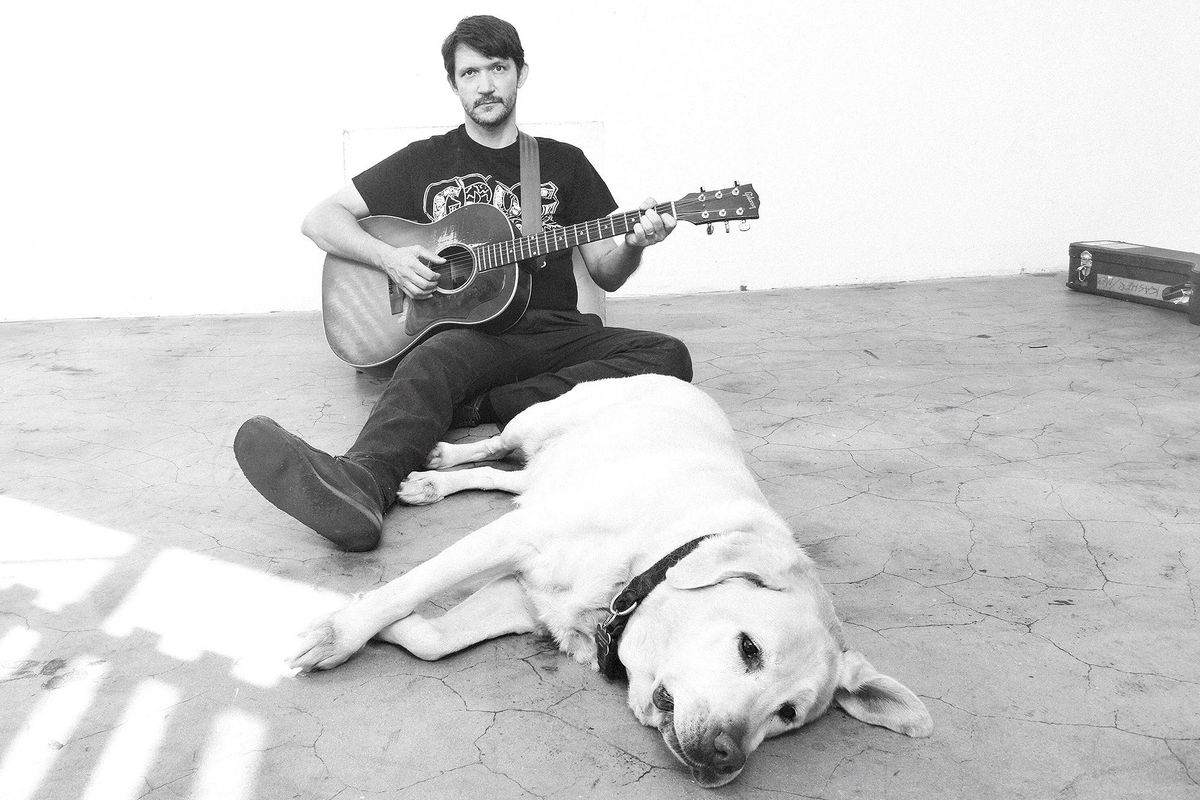Musician Tim Kasher brings cinematic elements of new album to the big screen

When indie-rock musician Tim Kasher speaks with the Spokesman-Review, it’s only 11 a.m. in his hometown of Omaha, but the Cursive and the Good Life frontman is already looking forward to getting to sleep.
It’s not the band rehearsal or the need to double-check his stock of merchandise that’s got him wishing for sleep; it’s the seven-hour drive to Denver he’ll have to make early the next morning for the first show of the tour behind “No Resolution,” his third solo album, which was released in March.
The tour brings Kasher, along with a five-piece band, to the Bartlett Friday.
“No Resolution” plays like a movie, following an engaged couple teetering closer to separation than wedded bliss.
In “Runts,” the couple shares mixed emotions about “Three worried weeks, and now, a positive pink plus sign.”
In “Holding Out,” one half of the couple begs the other to let them know if they’re coming or going, and in “Not Over You,” one sings about little moments in which they realize their partner is over them: “A subtle roll of the eyes/When I can’t find my car keys again/That almost inaudible laugh/What I retell old jokes to your friends.”
This cinematic element is nothing new for Kasher, who said he likes story songs and daydreamed about turning Cursive’s “I Am Gemini” into a stage production.
But with “No Resolution,” he’s taking it a step further and using the album as the soundtrack to his directorial debut film of the same name, which will be released later this year.
Growing up, Kasher loved movies (Mike Nichols’ use of Simon & Garfunkel in “The Graduate” is a favorite.) and planned on pursuing screenwriting, though things didn’t work out exactly as he had envisioned.
“Part of that desire to want to write so badly got me to start playing guitar as a young teenager,” he said. “That was something that very oddly and maybe uniquely and very fortunately snowballed really quickly, so I ended up on this music kick ever since I was 15. It made me also feel like it left me a little bit sidetracked because I wanted to focus on movies.”
After turning 30, Kasher made a promise to himself that he’d do just that and began writing screenplays.
What was in the beginning difficult and time consuming has since become second nature for Kasher. “No Resolution” is the first of his screenplays to come to fruition.
The movie does not follow the plot of the album, though Kasher said similarities can be drawn between the two elements.
“If they were to get familiar with the film and then get familiar with the soundtrack, you could recognize that the songs can almost be like continued stories or additional stories that aren’t in the movie,” he said.
The movie has been completed for a while now, but Kasher put it on the back burner after Cursive formed its own record label, 15 Passenger.
The label’s origins began with bassist Matt Maginn, who worked at Omaha-based Saddle Creek Records before helping Bright Eyes’ Conor Oberst start Team Love Records.
Cursive and Kasher licensed their albums with Saddle Creek until Maginn had the idea to take the Cursive catalog back from the label and release it through the band’s own imprint.
“We’re not even sure how much music other than ourselves we’re going to put out but it’s fun to speculate and talk about that,” Kasher said. “It’s fun to have our own label.”
At the moment, Kasher has yet to find a distribution deal for “No Resolution” and is hoping to tour the movie himself, performing a short musical set afterward.
Though music sidetracked his screenwriting as a teen, Kasher has since found a balance between the two, with each medium helping him more fully enjoy the other.
For example, rather than use concept albums like Cursive’s “Happy Hollow” and the Good Life’s “Album of the Year” to tell longer stories, an admittedly difficult thing to do, Kasher turns to screenplays and lets the music be just that.
“Once I was able to break out of that and start doing screenplays, it was such a relief for me to be able to finally tell long-form stories…” he said. “It really helps my songwriting too because it made me feel a lot more relaxed and then I could approach music as more of a musical thing. It’s a different medium and now I have an outlet of screenwriting, I find it a lot more enjoyable.”